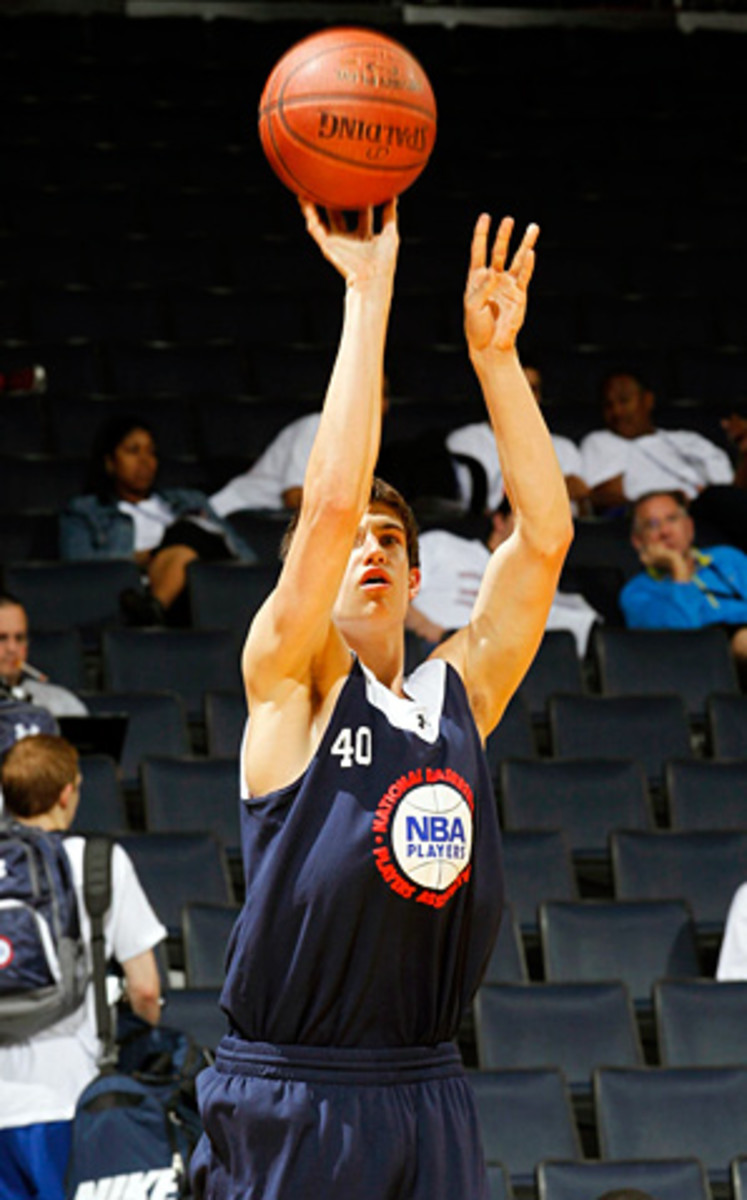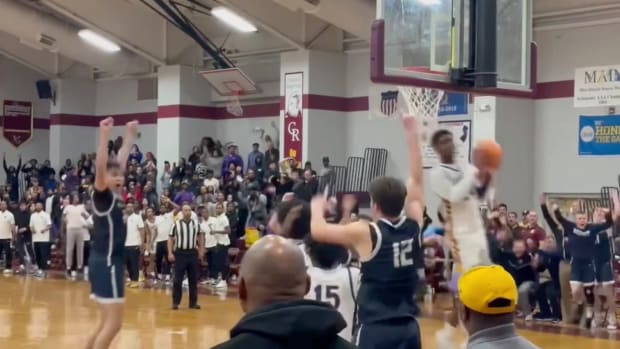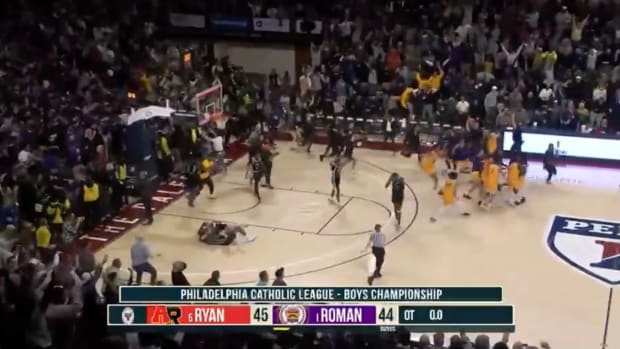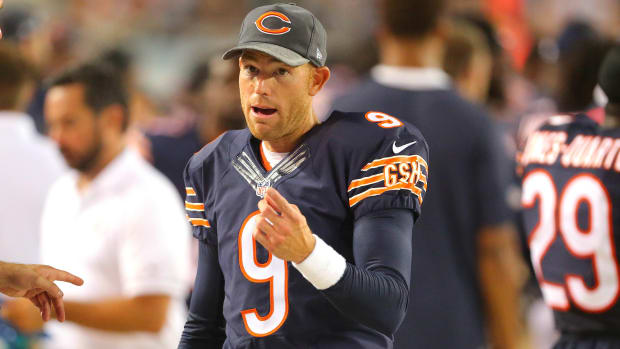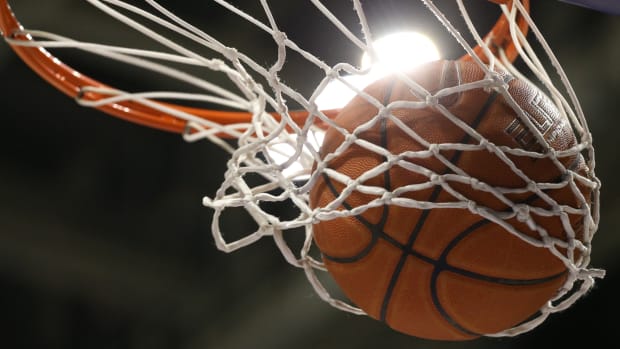The Cinderella Effect: A study of mid-major basketball recruiting
When Hampton (Ga.) Lovejoy's Justin Tuoyo told friends and classmates about the school he favored during last year's recruitment process, the 6-foot-8 forward was often met with the same response: Who's VCU?
Tuoyo isn't hearing that question nearly as often anymore.
VCU's stunning run to the 2011 Final Four made even the most casual basketball fans familiar with the Colonial Athletic Association program. There's no longer a need to refer to the school as Virginia Commonwealth -- the simple initials will suffice.
"Now everybody knows about them," said Tuoyo, who signed with VCU in November.
It raises an interesting notion: After rising to national prominence in last year's NCAA tournament, VCU attracted interest from several prospects who didn't consider it beforehand. But how much does a Cinderella run truly benefit mid-major recruiting?
The answer is complicated.
"I'm not going to say that because of last year, all of a sudden our recruiting profile has changed or the level at which we're recruiting," VCU coach Shaka Smart said. "It's not like we're going out there against the Floridas and Kentuckys and people like that and beating them for kids."
The difference is actually much more subtle, though a successful postseason does indeed make an impact. Perhaps the best way to measure the effect is via an examination of Butler, the Horizon League upstart that reached the national championship in each of the past two seasons.
Butler's 2010 class included two Rivals150 recruits, Pembroke Pines (Fla.) Flanagan forward Khyle Marshall (No. 118) and Indianapolis (Ind.) Herron guard Chrishawn Hopkins (No. 124). Its 2011 haul was headlined by O'Fallon (Ill.) forward Roosevelt Jones (No. 129), and its 2012 crop features Pendleton (Ind.) Heights guard Kellen Dunham (No. 141). The Bulldogs aren't consistently vying for four- and five-star talents.
But this is telling: Before this three-year stretch, Butler signed just two Rivals150 prospects (Nick Brooks in '03, Matt Howard in '07) since Rivals started covering basketball recruiting in 2002.
"We find ourselves more and more recruiting against BCS schools," Butler assistant coach Matthew Graves said. "Four or five years ago, you'd see different MAC schools and different types of Missouri Valley schools. Now when we're recruiting kids, you're looking at kids that might list Northwestern, Virginia, Michigan, Boston College. So you're seeing a different mix of schools that you're recruiting against than you were three or four years ago."
VCU often recruited against major-conference programs even before its Final Four run. Now, the Rams hope to win more of those battles. VCU recruiting coordinator Will Wade discussed the program's change in fortune by detailing a scenario in which the school might target five players who fit the Rams' profile but are also receiving feelers from major-conference programs.
"Maybe in the past, we could get one of those five," Wade said. "Now maybe we can get two or three of those five. It increases the odds, with our profile being raised."
The increase is noteworthy -- but it's important to keep things in perspective.
Butler's closest call in regards to landing an elite prospect came in 2011, when it pursued Washington (Ind.) forward Cody Zeller. Butler was one of three finalists for the five-star talent, along with Indiana and North Carolina. The Bulldogs came up short. Zeller chose the Hoosiers and was later named Big Ten co-freshman of the year.
But the Bulldogs have no regrets about going after Zeller, both because they believed they had a legitimate shot at him and because he lived nearby, cutting down on recruiting expenses.
"With his recruitment, you weren't out a lot of time and energy because you weren't spending a lot of money flying all over the country," Graves said. "He was a kid who was in our own state. It was one of those calculated risks that just didn't work out. Certainly you have to try and go after some of those types of recruits because he fit the correct profile of the type of student-athlete we want here at Butler. We'd be selling ourselves and our university short if we didn't attempt to go after kids that fit our profile.
"It's a calculated risk. You take the same kid, and let's say he's in California, where you can't get to see him as much. You're probably not going to spend as much time and resources if you're in an uphill battle with four or five high-major type schools. But for a local kid in the area, it certainly was worth the risk.''
The attempt to land Zeller didn't signal a permanent change in Butler's recruiting strategy, largely because the school understands it status. As much as Butler would love to pursue blue-chip prospects on a regular basis, the Bulldogs are more focused on making sure they locate players who fit well within their system.
For example, Butler's 2008 class didn't include a single Rivals150 player. Yet it produced an NBA lottery pick (Gordon Hayward), a second-round draft choice (Shelvin Mack) and a four-year starter (Ronald Nored). All three were starters on the 2010 NCAA runners-up, while Mack and Nored played pivotal roles on the equally successful 2011 squad.
Butler's coaches will talk to a prospect's high school coach, counselor and even some opposing coaches to get a sense of whether a player is worth pursuing. No matter where a player is ranked, Butler's coaches want to make sure he's a proper fit.
"We're very big on watching kids during timeouts, their interaction in huddles and on the bench when they're not playing," Graves said. "When they're in a game and they're up 20, how do they act? And what about if they're down 20 and things aren't going well? We're just taking into account all those things and coming up with the best analysis that we can. There's no perfect formula, but I think we can make an argument that we've done a pretty good job so far."
Dunham represents the latest example.
A three-star prospect who lives about 30 miles from Indianapolis, Dunham was considering Butler even before the Bulldogs embarked on their improbable runs to the Final Four. He committed to team before the summer of his junior year, and has since boosted his stock behind a senior season in which he averaged nearly 30 points per game.
"He was already looking at them as one of his strong contenders," Pendleton Heights coach Brian Hahn said. "The tournament success just pushed it over the top and made it the obvious choice."
The Final Four runs could also enable Butler and VCU to broaden their geographic reach, though both schools continue to focus primarily on recruits within their area.
Butler had landed Marshall from Florida before its first Final Four run, and the Bulldogs returned to the Sunshine State this year to gain a commitment from two-star Tampa Prep guard Devonte Morgan. VCU is also experiencing additional name recognition outside the East Coast.
"It certainly raised our visibility," Smart said. "There's much more recognition when we call recruits. We get more calls back. Probably the best thing about it is they've all seen us play, so whereas everyone in recruiting typically says, 'Hey, we play fast, we press and you get to shoot a lot of threes and get to play your game,' some people back that up and some people don't. We don't even have to say that. They've seen that. They've seen it on the biggest stage.
"That's probably the best part of what happened last year as it relates to recruiting."
Yet Smart remains unsure about how drastically one NCAA tournament can affect a team's long-term success. He wonders if top-level recruits want to see a longer period of excellence, and cites Gonzaga as an example. Gonzaga has signed six top-100 recruits -- including 2007 five-star prospect Austin Daye -- over the last seven years to essentially shed its former billing as a mid-major afterthought. But that flurry didn't come until several years after Gonzaga burst onto the national scene with a Cinderella run to a regional final in 1999.
"I don't know if one year definitely makes a direct impact where you're now getting significantly better players," Smart said. "I think a sustained run of excellence -- if you look at what Gonzaga has done the last 10 to 15 years -- that obviously has an effect. I think a program like that is now able to recruit significantly better players than they were before.''
That makes the 2012 NCAA tournament particularly noteworthy for programs like VCU. Just as Butler cemented its national status last year by proving its 2010 run was no fluke, VCU would benefit from wreaking bracket havoc in back-to-back seasons. VCU also must hang onto Smart, who is considered a prime candidate for Illinois' coaching vacancy.
One trip to the Final Four already helped VCU raise its profile among recruits. A second straight productive postseason could have an even greater impact.
